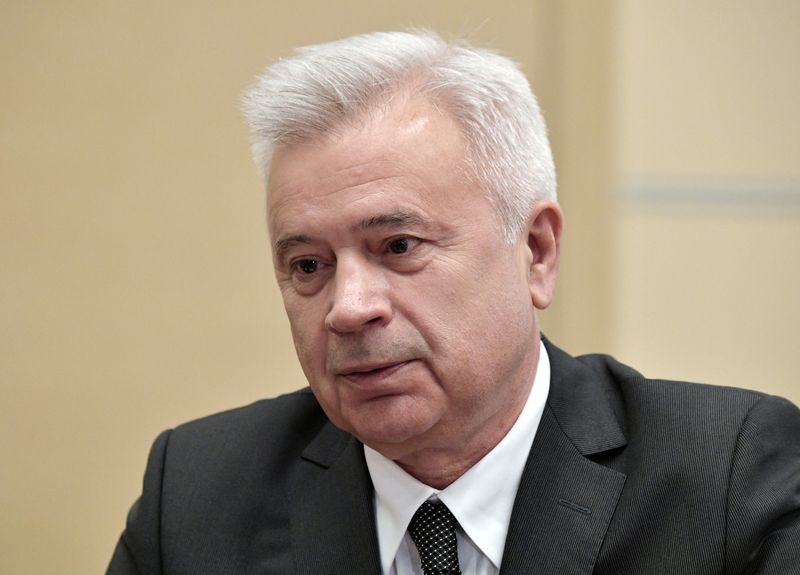By Alexander Marrow
LONDON (Reuters) - Russia's richest people added $72 billion to their fortunes over the past year, taking their collective wealth to $577 billion, Forbes said on Tuesday, with Vagit Alekperov, former president of oil major Lukoil, taking Russia's top spot.
In 2021, before Russia's invasion of Ukraine, Forbes had estimated the total wealth of Russian billionaires at $606 billion. High commodity prices in the past two years and Russia's war-focused economic growth stifling the impact of Western sanctions have aided a recovery towards that figure.
Many Russian billionaires fell under Western sanctions as the West sought to punish President Vladimir Putin and those deemed close to him for launching the war in Ukraine. Their total wealth dropped to $353 billion in 2022.
Alekperov's fortune rose to $28.6 billion from $20.5 billion over the past year, Forbes said. He took first place in Russia from now seventh-placed Andrei Melnichenko, who made his fortune in fertilisers and whose worth fell to $21.1 billion from $25.2 billion.
Leonid Mikhelson, the head of Russian natural gas producer Novatek, was listed in second place by Forbes, with his wealth increasing by $5.8 billion to $27.4 billion.
Forbes said there were now more billionaires worldwide than ever, with 2,781 in total and the top 20 accounting for most of the gains in wealth. Alekperov came in 59th place globally.
"They're richer than ever, worth $14.2 trillion in aggregate, up by $2 trillion from 2023," Forbes said.
Putin has repeatedly touted the failure of Western sanctions to destroy the Russian economy and played up the fact that Russia's economy expanded faster last year - with GDP growth of 3.6% - than any of the Group of Seven nations largely responsible for sanctions.
Boasting vast natural resources, Russia's economy rebounded sharply from a 2022 slump, but the growth relies heavily on state-funded arms and ammunition production for the war in Ukraine, masking problems that are hampering an improvement in Russians' living standards.

This year, the International Monetary Fund (IMF) expects Russian GDP growth of 2.6%, but foresees tough times ahead for the economy due to outflows of people and shortages of technology.
Russian business people have in particular benefited from the Western corporate exodus, with scores of companies selling assets cheaply or having their Russian operations seized and local managers installed.
